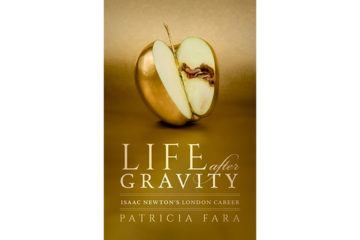Steve Donoghue in The Christian Science Monitor:
 Many of us tend to like our geniuses as neatly lovable caricatures. And when it comes to Isaac Newton, we tend to envision a virtually disembodied intellect who was inspired by a falling apple to revolutionize physics from the quiet of his study at Trinity College.
Many of us tend to like our geniuses as neatly lovable caricatures. And when it comes to Isaac Newton, we tend to envision a virtually disembodied intellect who was inspired by a falling apple to revolutionize physics from the quiet of his study at Trinity College.
But even when Newton was performing his intellectual feats at Cambridge in the 1680s, he was eager to move on to a new life. Patricia Fara, historian of science at Cambridge University, seeks to chronicle that period in “Life after Gravity: Isaac Newton’s London Career.” In this book she presents Newton as “a metropolitan performer, a global actor who played various parts.”
Here we have not the familiar – and almost inhuman – Newton who produced his great “Principia Mathematica” in 1687, but rather a worldly, cosmopolitan Newton: master of the Royal Mint, president of the Royal Society, member of parliament, speculator on the market, prominent man-about-town.
More here.
